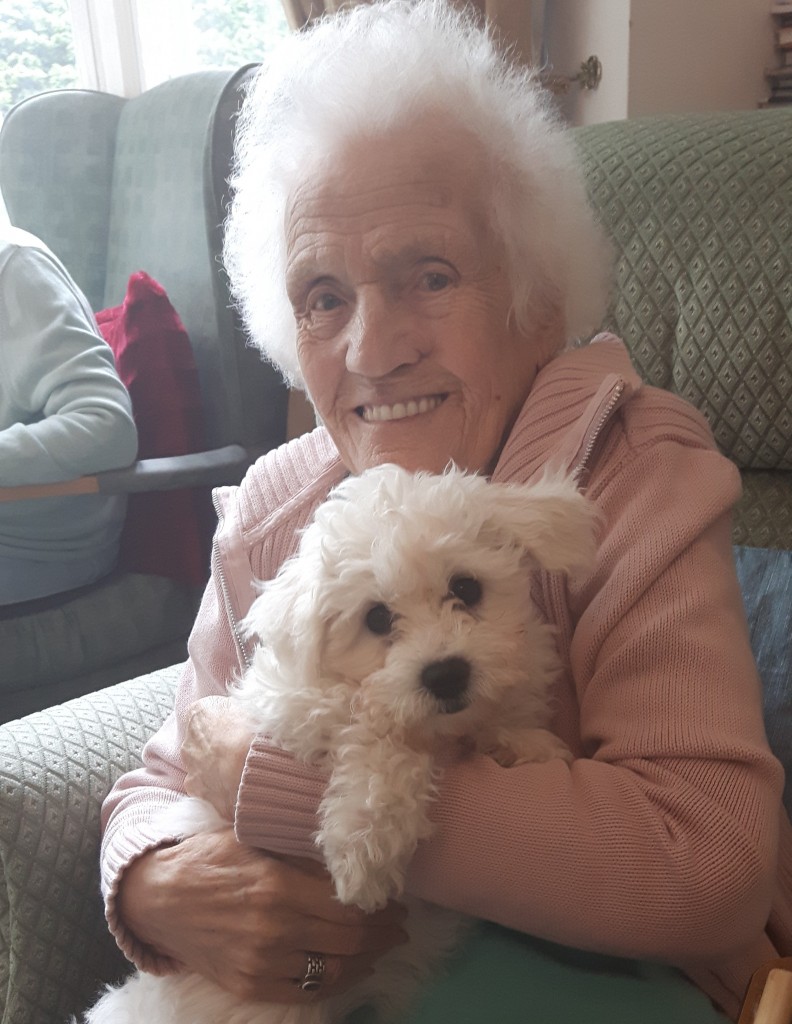Understanding Dementia
We have spoken quite a bit about dementia lately, because we feel it is an important subject that is often overlooked. In this blog post, we go through the best ways to communicate with someone suffering from dementia.
What is dementia?
Dementia is a progressive brain disorder that affects the memory of sufferers, and it makes it hard to both remember things and think clearly. Communication is often very difficult, and sometimes stressful. It is best to have some coping strategies up your sleeve in case you are faced with changes in personality, caused by dementia. Here are our top 10 strategies on how to communicate with a person who has dementia.
1. Interact in a positive way
Even keeping your body language positive will help give the right impression. Speak to your loved one in a pleasant, soft manner – think about your tone of voice too. Physical touch can help reiterate your feelings of affection.

2. Get the person’s attention
People with dementia get distracted easily, and tend to have short attention spans. Help them out by removing any background distractions (such as the radio or TV) and have a one-on-one session with them. By repeating their name, this will help to re-engage them into the conversation.
3. Be clear with your message
Don’t make things any more confusing than necessary. Use simple words and sentences, and speak slowly in a reassuring tone. If the person doesn’t understand what you are saying, repeat yourself in a slow and clear manner. Do not get frustrated, as this will not help either of you.
4. Ask simple questions
Closely linked with the previous point, don’t ask anything too demanding. Short questions that require either a ‘yes’ or ‘no’ answer are best. Visual prompts are a great way to help guide a response too.
5. Listen and be patient
Again, patience is key here. If you find your loved one is really struggling to answer a question, help them out. Suggest some answers to prompt them along.
6. Break down tasks
When you are sitting down for a meal with a loved one suffering from dementia, this can sometimes be a traumatic experience for them. They may have forgotten how to use cutlery, and not perform simple tasks on their own. You need to be their guide, lead by example if it helps them out.
7. When things get tough, find a distraction
Rather than going over and over a task, where the person just doesn’t understand, stop. Distract them with something else, and come back to it. It is a good idea to connect with them on a personal level first, even just say ‘I’m sorry you are upset’, before moving on to a new subject. Don’t just ignore their emotions.

8. Provide reassurance & affection
Confusion and stress are both huge emotions associated with dementia. This is where you need to be level-headed and supportive, more than ever. Focus on the feelings that they are demonstrating, and offer both verbal and physical support and comfort. Sometimes a hug, or just holding their hand will bring them back round.
9. Remember the golden days
It is not always a bad thing to remind the sufferer of the good times you used to have. Bringing back those memories may just ignite some of their emotions, and put a smile on their face. Many people with dementia remember long-term memories easier than something that happened 30 minutes ago.

10. Don’t lost your sense of humour
Of course this is easier said than done, but try and keep conversations light-hearted and upbeat. If you are positive, this will be reflected in the person you are communicating with. You may just make their day and even get a laugh from them.
Making life easier for you both
Just remember that you cannot change a person who has dementia, their brain has undergone a chemical change which is unable to be reversed. However, by using some of the tips above you can make that conversation a little bit easier. The less stressful you can make normal situations, the better for the dementia sufferer.
Also try to remember that every day will be different. There will be good and bad days, but you just need to take the time at the beginning of each day to assess how the person is acting and if they are on form or having a turn. We carry this out in the form of dementia care mapping here at Waltham House. Get in touch if you want to know more about this service we offer.


